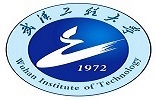2018 International Conference on Intelligent Computing
August 15-18
,2018
Wuhan,China
(http://www.ic-icc.cn/2018/index.htm)
This is the Fourteenth International Conference on Intelligent Computing, which is built upon the success of ICIC'05, ICIC'06, ICIC'07, ICIC'08, ICIC'09, ICIC'10, ICIC'11, ICIC'12, ICIC'13, ICIC'14, ICIC'15, ICIC'16 and ICIC'17 held in Hefei, Kunming, Qingdao and Shanghai, China, and Ulsan, Korea, Changsha, Zhengzhou, Huangshan, Nanning, Taiyuan, Fuzhou, Lanzhou, China and Liverpool,UK respectively. The intelligent computing annual conference primarily aims to promote the research, development and application of advanced intelligent computing techniques by providing a vibrant and effective forum across a variety of disciplines. This conference has a further aim of increasing the awareness of industry of advanced intelligent computing techniques and the economic benefits that can be gained by implementing them.
The intelligent computing technology includes a range of techniques such as Artificial Intelligence, Pattern Recognition, Evolutionary Computing, Informatics Theories and Applications, Computingal Neuroscience & Bioscience, Soft Computing, Human Computer Interface Issues, etc.
ICIC theme unifies the picture of contemporary intelligent computing techniques as an integral concept that highlights the trends in advanced computational intelligence and bridges theoretical research with applications. Therefore, the theme for this conference is
Advanced Intelligent Computing Methodologies and Applications
. Papers related to this theme are especially solicited, including theories, methodologies, and applications in science and technology.
Topics covering industrial issues/applications and academic research into intelligent computing will be included, but not limited to:
A. ALGORITHMS AND THEORIES
A1 Evolutionary Computing and Learning
A2 Genetic Algorithms
A3 Particle Swarm Optimization and Niche Technology
A4 Swarm Intelligence and Optimization
A5 Independent Component Analysis
A6 Blind Source Separation
A7 Compressed Sensing and Sparse Coding
A8 Natural Computing
A9 Quantum Computing
A10 Neural Networks
A11 Nature Inspired Computing and Optimization
A12 Signal Processing
A13 Pattern Recognition
A14 Biometrics Recognition
A15 Image Processing
A16 Information Security
A17 Virtual Reality and Human-Computer Interaction
A18 Business Intelligence and Multimedia Technology
A19 Healthcare Informatics Theory and Methods
A20 Biomedical Informatics Theory and Methods
B. MODELS AND SYSTEMS
B1 Rough Sets
B2 Fuzzy Theory and Algorithms
B3 Supervised Learning
B4 Unsupervised Learning
B5 Reinforcement Learning
B6 Kernel Methods and Supporting Vector Machines
B7 Machine Learning
B8 Knowledge Discovery and Data Mining
B9 Natural Language Processing and Computingal Linguistics
B10 Intelligent Computing in Robotics
B11 Intelligent Computing in Computer Vision
B12 Intelligent Computing in Finance/Banking
B13 Intelligent Computing in Communication Networks
B14 Intelligent Control and Automation
B15 Intelligent Image/Document Retrievals
B16 Intelligent Data Fusion
B17 Intelligent Data Analysis & Prediction
B18 Intelligent Agent and Web Applications
B19 Intelligent Fault Diagnosis
B20 Expert Systems
C. COMPUTATIONAL SYSTEMS BIOLOGY AND MEDICAL INFORMATICS
C1 Gene Expression Array Analysis
C2 Gene Regulation Modeling and Analysis
C3 Protein-Protein Interaction Prediction
C4 Protein Structure and Function Prediction
C5 Next-Gen Sequencing and Metagenomics
C6 Structure Prediction and Folding
C7 Molecular Sequence Alignment and Analysis
C8 Analysis and Visualization of Large Biological Data Sets
C9 Biomarker Discovery and Detection
C10 Molecular Evolution and Phylogenetics
C11 Systems Biology
C12 Modeling, Simulation, and Optimization of Biological Systems
C13 Biomedical Data Modeling and Mining
C14 Neuroinformatics
C15 Cheminformatics
C16 Intelligent Computing in Computingal Biology
C17 Intelligent Computing in Drug Design
C18 Computingal Genomics
C19 Computingal Proteomics
C20 SNPs and Haplotype Analysis
All accepted conference papers will be published by Springer Verlag, including Lecture Notes in Computer Sciences (LNCS)/Lecture Notes in Artificial Intelligence (LNAI)/Lecture Notes in Bioinformatics (LNBI). All the papers published in these three volumes of Lecture Notes since 2005 have unexceptionally been indexed in EI Compendex, SCOPUS, and DBLP etc.. This record has continuously been kept for 13 years. And a small number of selected high-quality papers will be extended for possible inclusion in several main-stream international journals. Fees, if any, for such Journal publications, will have to be borne by the authors.
Manuscripts should be written in English with a single-column, single-space format. Each newly submitted paper should be not shorter than 10 pages including figures and references. The format for submitted papers should refer to the ELECTRONIC FORMAT REQUIREMENTS of the Springer-Verlag. We are strongly suggesting you to typeset your paper in Springer LNCS WORD format when you are submitting your papers. In doing so, it will save your time in typesetting your camera ready paper for registration process. Authors should submit their papers to the ICIC 2018 by the On-Line Electronic Submitting System.
Important Deadlines
Paper submission:
March 10, 2018
April 15, 2018
Pre-Decision notification:
April 18, 2018
April 25, 2018
Decision notification:
April 25, 2018 May 2, 2018
Special session proposal:
February 25, 2018 March 10, 2018
Workshop proposal:
April 30, 2018
Tutorial proposal:
May 1, 2018
Camera-ready submission:
May 10, 2018
Registration:
May 10, 2018
Conference:
August 15-18
, 2018
SPECIAL SESSIONS
The ICIC 2018 Program Committee is inviting proposals for Special Sessions (possibly Workshops). All planned papers for Special Sessions (possibly Workshops) will undergo the same review process as the ones in Regular Sessions. Proposals should be submitted in ELECTRONIC FORMAT to Special Session Chair.



